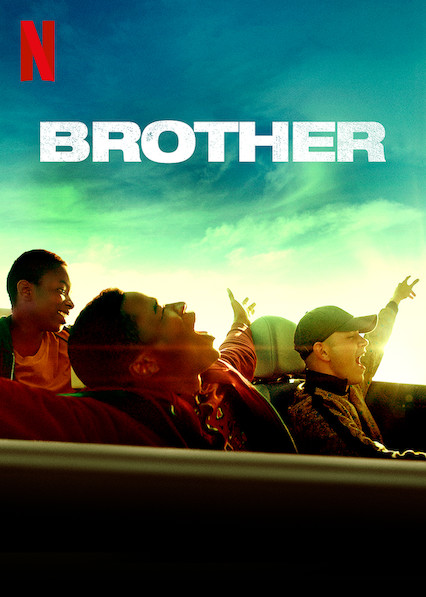By: Ryan Farrell, Staff Writer
Julien Abraham’s new drama, originally titled “Mon Frère”, was released on Netflix as “Brother” last weekend after it was released in international cinemas in July. This French drama, starring MHD and Darren Muselet, features a plethora of emotional performances and raw talent. Unfortunately, a confusing and vague story with a bizarre anticlimactic ending prevents “Brother” from being memorable.
“Brother” begins with the violent death of a father. Teddy, his eldest son, is accused of the murder and is put away into a closed educational center while he awaits trial. This also forces his younger brother into the care of his neglectful grandmother. As Teddy navigates his new environment, he finds himself subjected to multiple racial attacks. While the two men butt heads at first, Teddy slowly befriends Enzo, the criminal boss of the center. As Teddy awaits prosecution, he must survive this unpredictable institution while constantly battling his family’s past trauma.
The film’s greatest strengths are its consistent tone and unique setting. “Brother” is a dire portrayal of an alternative rehabilitation center. This location only houses around ten people so it is significantly smaller than a traditional prison. It requires that inmates take a multitude of educational programs. Teddy and Enzo, for example, find a mentor in a boxing coach who is able to release their pent-up aggression over time. This unique alternative is shown to be effective for some, while others remain set in their ways. It is refreshing to see a story of confinement in a setting that isn’t a stereotypical jail. The methods that the institution use are far more therapeutic and rehabilitative; however, inmates refrain from keeping the peace.
The “Brother” shortcomings ultimately comes from its vague plot. While Teddy experiences this new setting, there is not enough context to make his crime comprehensible. The audience hears what Teddy’s sentence is, but the validity of it is uncertain. While he is institutionalized, small fragments of the tragic event unfold slowly over time, ultimately leading up to the scene of the crime. Since this is done in the third act, the true nature of the crime is meant to be the film’s climactic reveal. This ultimately makes “Brother” feel disorienting, and by the time the answers are clear, the investment in the story is already gone.
While the story in “Brother” is vague, it is nonetheless a film scattered with emotional moments. There’s a significant amount of screen time dedicated to how the two brother’s family life was prior to their father’s murder. Thy are often subjected to both emotional and physical abuse while also witnessing the abuse that their father inflicted towards their mother. Silence is used so that the cinematography focuses on body language, which can be terrifying in nature. These scenes really flesh out the traumatic bond that they share, which makes the brother’s separation all the more painful. These sequences are the most captivating and memorable scenes due to the unique cinematography, making other scenes dull by comparison.
“Brother” is currently streaming on Netflix.

